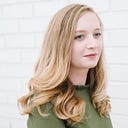Member-only story
The Rich and Well-Connected Get First Dibs on Antibody Tests
But there’s no guarantee they’ll be accurate
During a recent biotech roundtable hosted by industry group SynBioBeta, Apple co-founder Steve Wozniak suddenly appeared in the Zoom meeting, taking all the panelists by surprise.
“I’ve always wanted to be a Zoom bomber,” he joked. The event was about antibodies, which are at the center of research and testing efforts to combat the novel coronavirus. Wozniak revealed that he and his wife Janet underwent testing for antibodies after traveling through China and Southeast Asia earlier this year.
Wozniak tweeted on March 2 that Janet was getting checked out for a bad cough after returning from China. He added that they might both be “patient zero” in the United States, causing a mild panic on Twitter. But, as he said during the roundtable, their antibody test results came back negative.
While the vast majority of people in the United States are waiting for antibody tests to become available, some wealthy and well-connected individuals and communities are already getting access to them, even though the vast majority haven’t been vetted by the Food and Drug Administration and are not guaranteed to be accurate. The great hope is that antibody tests could reveal who’s immune to the virus, allowing…

